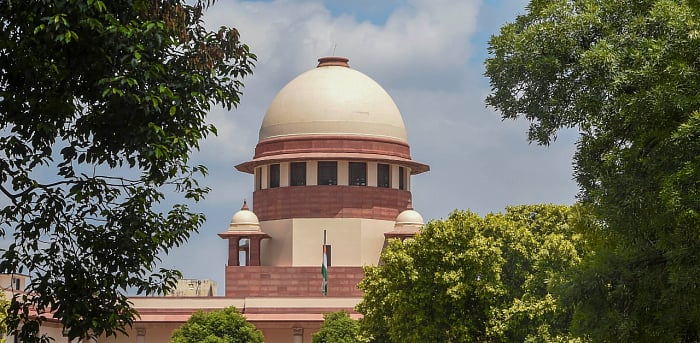
The Supreme Court has used its extraordinary power under the Constitution to let off a man who was accused of raping a minor girl, after noting he had married the victim and both were living "happily" with two children.
A bench of Justices L Nageswara Rao (since retired) and B R Gavai, however, clarified that the conviction and sentence of the appellant, K Dhandapani is set aside in "the peculiar facts of the case and shall not be treated as a precedent".
The appellant here who belonged to Valayar community, the most backward community in Tamil Nadu, was sentenced to 10 years in jail by the trial court. The Madras High Court had upheld the judgement.
In his plea, the counsel for the appellant submitted that he was a maternal uncle of the victim and was accused of maintaining relationship with her on promise of marriage. He further said, in fact, he had married the girl and they have got two children out of wedlock.
"This court should exercise its power under Article 142 of the Constitution and ought to do complete justice and it could not be in the interest of justice to disturb the family life of the appellant and the victim," the counsel said.
After hearing the counsel, the bench directed the District Judge to record the statement of the girl about her present status. It noted the statement of the girl has been placed on record in which she has categorically stated that she has two children and they are being taken care of by the appellant and she is leading a happy married life.
The Tamil Nadu government led by advocate Joseph Aristotle opposed the plea saying the girl was aged 14 years on the date of the offence and gave birth to the first child when she was 15 years and second child was born when she was 17 years.
He argued that the marriage between the appellant and the girl is not legal. He expressed his apprehension that the said marriage might be only for the purpose of escaping punishment and there is no guarantee that the appellant will take care of the girl and the children after this court grants relief to him.
The bench, however, said, "In the peculiar facts and circumstances of this case, we are of the considered view that the conviction and sentence of the appellant who is maternal uncle of the girl deserves to be set aside in view of the subsequent events that have been brought to the notice of this court."
"This court cannot shut its eyes to the ground reality and disturb the happy family life of the appellant and the prosecutrix. We have been informed about the custom in Tamil Nadu of the marriage of a girl with the maternal uncle," the bench added.

